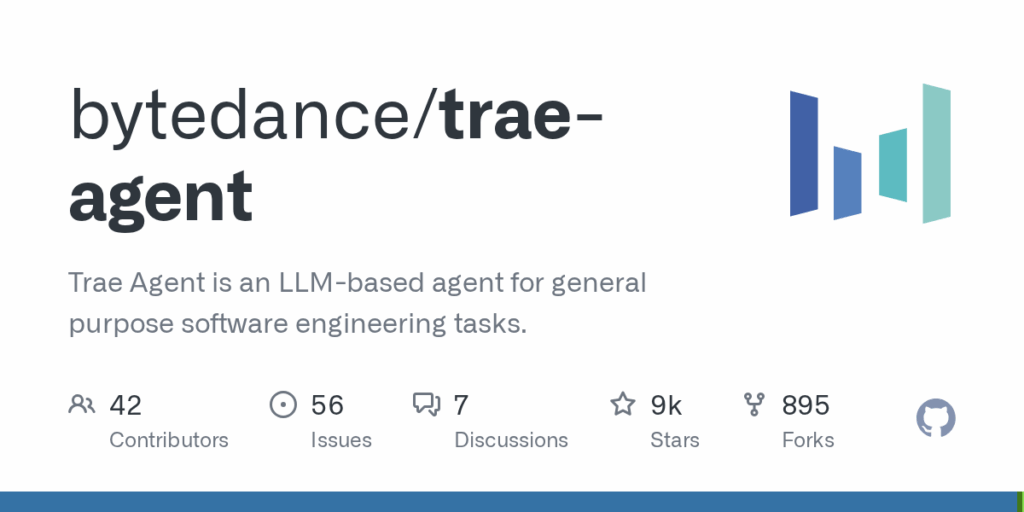trae agent
Basic Information
Trae Agent is an open-source, LLM-driven command-line agent designed to perform general-purpose software engineering tasks and to serve as a research-friendly platform for studying agent behavior. It provides a CLI that accepts natural language instructions and executes multi-step workflows using a modular toolset. The project emphasizes a transparent, extensible architecture so researchers and developers can modify, extend, and analyze agent components, conduct ablation studies, and develop new capabilities. It supports multiple LLM providers and models, records detailed execution trajectories for analysis, and can be configured via YAML or environment variables. Optional MCP services and local model support are provided to integrate browser automation or alternative runtimes. The repo includes installation, configuration, usage examples, and development guidance for contributors.








